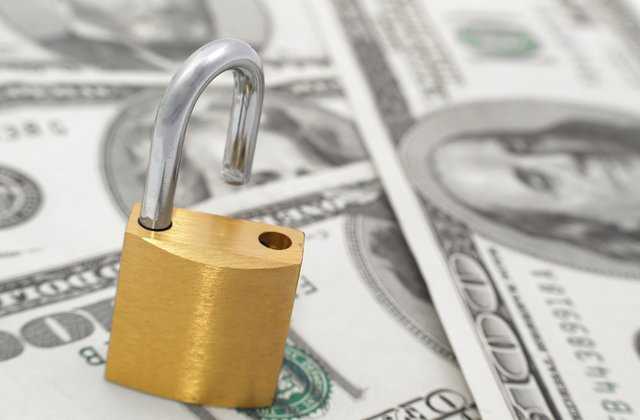
Investors willing to give up returns for ironclad safety have often turned to federally insured bank savings , which are even more secure than money market funds. And to earn a bit more than checking and savings accounts offer, they can buy certificates of deposit .
CDs come with a serious drawback, however, as money is tied up for months or years. But investors who look hard enough can find a few deals that attempt to provide the best of both worlds: yields that beat savings and checking accounts plus the right to pull your money out early without paying a penalty.
"A few more have popped up in the last year, but they are still rare," says Ken Tumin, founding editor of Lending Tree's DepositAccounts.com. "The one with the longest history is the Ally Bank No Penalty 11-month CD. In the last year, CIT Bank has come out with its own 11-month no-penalty CD. A couple of credit unions have also come out with similar no-penalty CDs."
Ordinary CDs typically withhold the final six months interest earnings if the investor withdraws funds early, but the no-penalty variety does not.
"If the no-penalty CD offers a higher rate than internet savings accounts, it can be attractive," Tumin says. "Like a savings account, the no-penalty CD doesn't lock in your money until the CD matures. The only exception is that you can't access the funds for the first six days after the CD is funded. After this initial period, you can access both the principal and accrued interest without any amount being lost to an early withdrawal penalty."
[See: 7 of the Best Stocks to Buy for 2018 .]
But there is a catch: No-penalty CDs generally pay a little less than standard CDs with the same maturity.
Ally Bank, the internet-only firm, for example, offers an 11-month no-penalty CD yielding 1.25 percent for deposits of $5,000 to $25,000. But Ally's standard 12-month CD pays 1.7 percent.
The no-penalty deal would therefore appeal to an investor who really thinks the need for an early withdrawal is likely for an emergency or better investing opportunity. If not, it would make more sense to get a CD with higher yield and pay the penalty if the need arises.
Chris Robbins, an investment advisor with Bartlett & Co. in Cincinnati, says a money market fund can be a better alternative for an investor likely to need quick access to cash.
"The benefit to a money-market fund is instant access," he says, "so a CD would be preferred if you have a high degree of certainty that you won't have a need for that money until the CD matures."
Some investors will find no-penalty CDs appealing now because of the chance rising interest rates will lift CD yields in the near future. Many experts think rates will rise as the economy heats up and the Federal Reserve pulls back from its long-running low-rate policy.
"Both savings accounts and no-penalty CDs are attractive when rates are rising," Tumin says. Both allow the investor to quickly move to a product that pays more.
But Tumin says investors should watch out for potential snags, like rules that make withdrawals tricky.
[See: 8 Cheap ETFs to Build Your Nest Egg .]
"Sometimes a bank or credit union may offer a no-penalty CD that has limitations on when or how much can be withdrawn without a penalty," he says.
And Garrett W. Hurley, CEO of BRIX Wealth Management in New York, cautions about fine print in any type of CD.
"Banks are becoming wary in a low-yield environment about offering competitive rates on longer maturities if clients can, without much sacrifice, withdraw the funds and reinvest in a higher yielding CD when rates rise," Hurley says. "But, if the penalty for a five-year CD is 12 months interest, and the investor only owns the CD for six months, there is the risk of losing some principal beyond simply the interest earned to date. If that same CD, however, limited your loss to accrued interest, that could make a switch to a new CD more beneficial."
Among the things to consider:
Is a CD a good choice in general? CDs pay more than you can earn in a savings or checking account but are pretty stingy compared to recent returns on stocks, or yields on income producers with more risk than CDs, such as real estate investment trusts, master limited partnerships or preferred stocks.
Other ways to hedge. Instead of settling for lower yield for early withdrawal, you might use a traditional laddering strategy. That involves dividing your cash between several CDs with short, medium and long maturities. The short-term ones will pay less but make your cash available fairly soon, and the penalty won't be that bad if the yield is low anyway. In a severe crisis, you could cash out of the long-term CDs as well, and just take the penalty. If you don't need the cash you can reinvest the principal received when your short-term CDs mature.
Another option is the step-up CD , which allows the investor to earn more if rates rise. Again, you must settle for slightly less in return for this option.
Don't reach for yield. While higher yields are definitely better than low ones, the chief benefit of bank savings is federal insurance on deposits. If other investments like stocks plunge, CDs of any type may look pretty good, and a tiny difference on yield may seem trivial. Paying a small penalty on a standard CD might look like nothing if you can get at cash for a serious need or great investing opportunity, and hold your value while other investments drop.
Is it convenient? While it's easy to shop online for the best deal, experts urge investors to be sure a product purchased from an internet bank, or one far away, will be easy to manage. Will you be able to buy and sell online? Could you transfer funds quickly and easily between your CD provider and your regular bank?
Consider the timing. Finally, the investor should think about how long the money will stay in savings if all goes according to plan. If the money is a reserve fund not likely to be tapped, it can go into a CD with a longer term and earn more.
[See: 10 Investing Themes to Remember for 2018 .]
"If interest rates rise faster, a higher-rate long-term CD with a small early withdrawal penalty can be closed early and re-invested into a higher-rate CD," Tumin says. "This can earn more than a savings account or no-penalty CDs. However, it's more likely to earn more if the long-term CD isn't closed within the first year or two."
8 Small-Cap ETFs With Big-Time Potential

Compare Offers
Compare Offers
